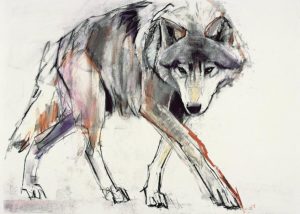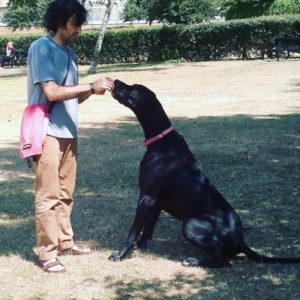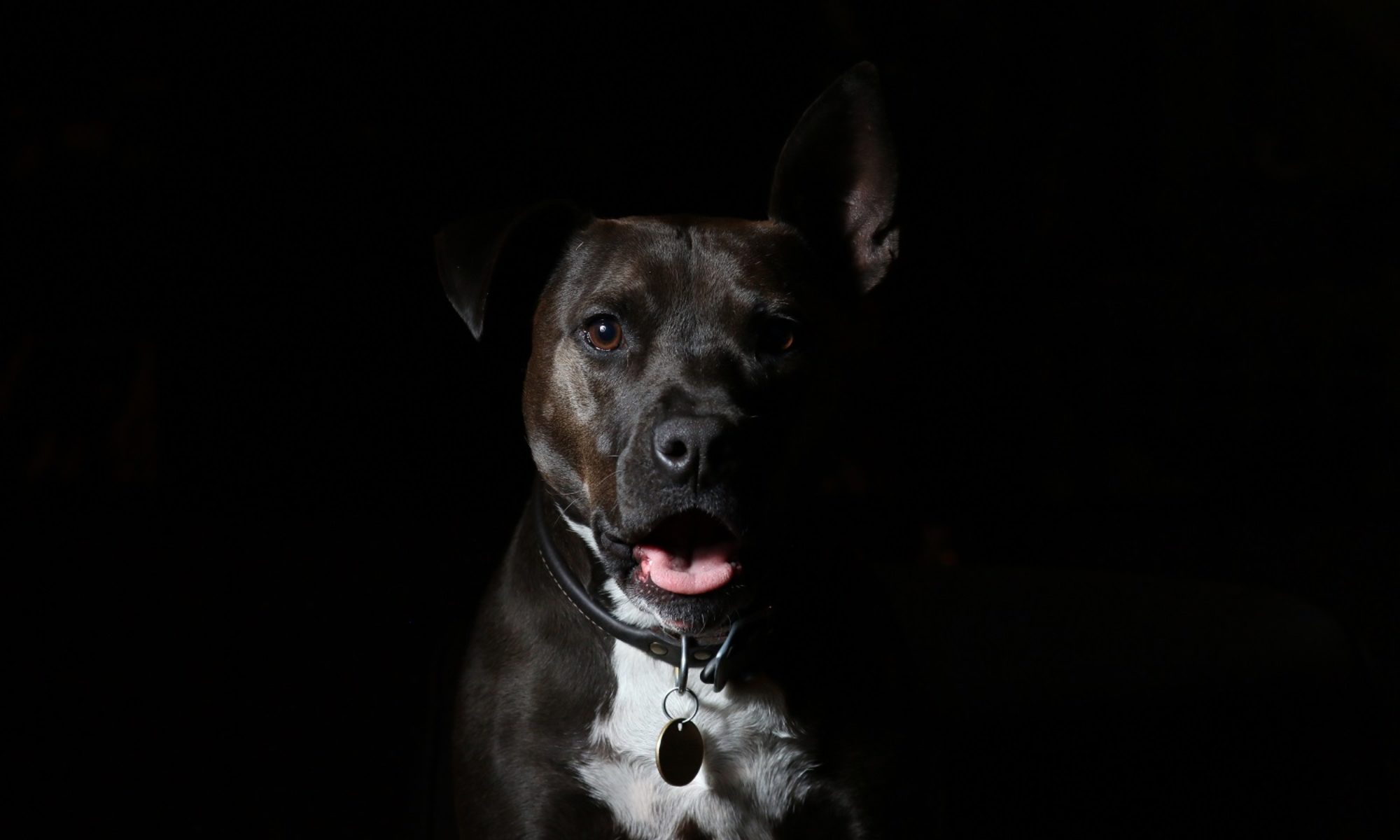
Where did ‘dominance theory’ come from?
The common approach to canine social behaviour known as ‘dominance theory’ was built on research evidence which observed wolves, and showed that wolves live in hierarchical packs with the ‘alpha wolf’ at the top. Given that dogs evolved from wolves, researchers claimed that dogs also adhered to a hierarchical pack, with humans considered to be part of the pack. Dominance theory assumed that most unwanted behaviour, such as aggression, is due to the dog trying to be ‘dominant’ or wanting to be ‘the alpha dog in the pack’. As such, dominance theory suggests that the way to solve behavioural problems in dogs is to establish dominance as pack leader over the dog.
The idea that owners must dominate their dogs gained huge popularity in the 1960s with the publication of: The Wolf: Ecology and Behaviour of an Endangered Species published by David Mech. But these research findings have since been shown to have been inappropriately applied to the domestic dog. In 1999, David Mech published an updated work: Alpha Status, Dominance and Division of Labour in Wolf Packs, where he corrected his earlier mistaken ideas pointing out that dogs do not have the same social structures as adult wolves.
Among behavioural specialists, it is now widely recognised that dogs that use aggression towards humans or other dogs are not trying to be ‘dominant’, rather dogs may use aggression as a means to control situations where they feel frustrated, fearful or anxious. Sometimes, dogs who have used aggression repeatedly have learned that ‘it works’ and are therefore more likely to use aggression to control similar situations in the future.
What is wrong with ‘dominance theory’?
Among the field of canine behaviour, many professionals are concerned that the ‘dominance’ theory continues to survive even though more-and-more evidence shows that, at best the theory is unhelpful, at worst highly detrimental. Using this theory prevents many owners from understanding their dogs, can cause unhappiness, and can harm the human-animal bond. By definition the ‘dominance’ method relies on the social exclusion of the dog which in turn can lead to depression, anxiety and learned helplessness.
The ‘dominance’ theory for dog behaviour poses questions regarding dog welfare. Dominance-based approaches often use aversive training techniques such as ‘alpha rolls’ (forcing the dog down on its back and holding it there), staring the dog down (intimidation), or other confrontational methods and punishment which can cause fear, pain and distress to the dog. Aversive methods can also increase the dog’s underlying fear, frustration or anxiety, which can actually make the unwanted behaviour worse.
What should I use instead of ‘dominance theory’?
Ultimately, methods based on the theory of ‘dominance’ are flawed and should be avoided in favour of a more efficient, effective and evidence-based approach to canine behavioural change. Alternative, ethical approaches include ‘reward-based training’, ‘positive reinforcement’, and ‘counter-conditioning and desensitisation’, to name just a few.
Dogs should be trained using programmes that are designed to facilitate the development and maintenance of wanted behaviour, using positive reinforcement and other ethical techniques. This position is supported by the Royal Society of the Prevention of Cruelty to Animals (RSPCA), as well as many respected academics in the field of canine behaviour.

When trying to change your dog’s behaviour, reward the behaviour you like. This might include acting calmly when the doorbell goes, instead of barking and jumping on guests. This approach centres on positive reinforcement, in other words, rewarding outcomes you want. Rewards can be food, toys, verbal praise, physical contact etc.
Alternative approaches to overcome unwanted canine behaviour will be addressed in more detail in other blogs.
This short blog was based on a technical report submitted to “Think Dog Advanced – Rank Structure ”. The full technical report, with references, can be accessed by emailing the author at dannydecourtelle@rocketmail.com
